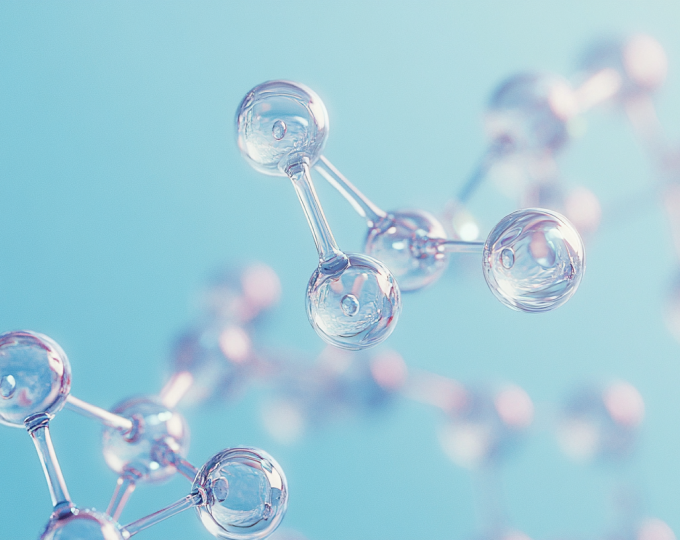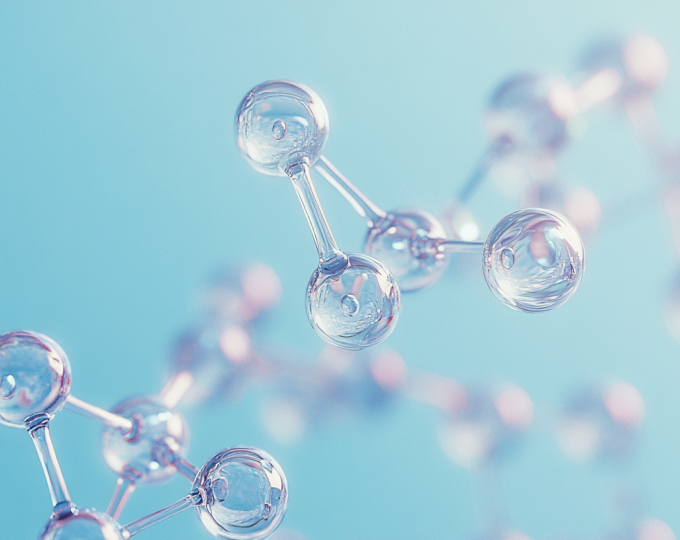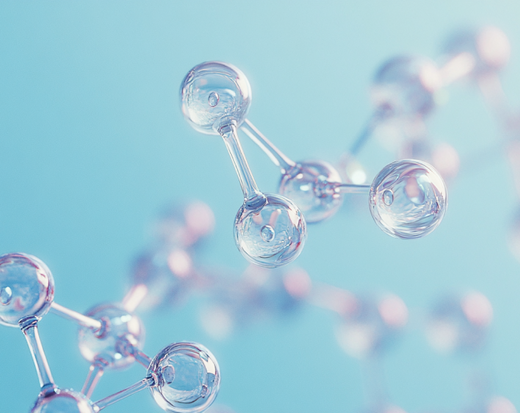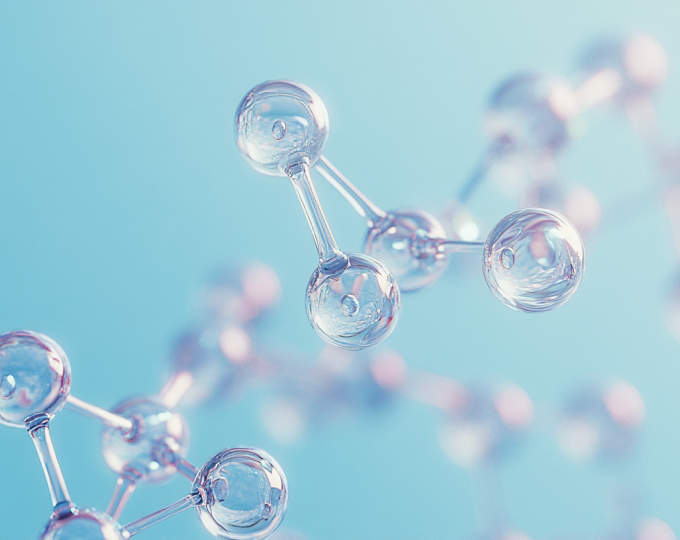Table of Contents
- Why athletes have an increased need for nutrients
- Endurance vs. strength sports: how the need for nutrients differs
- What is the difference between macronutrients and micronutrients?
- Athletes need these macronutrients
- Which micronutrients provide power for athletes?
- Endurance sports: what you should look out for
- Weight training: What do I need to build muscle?
- Which micronutrients are particularly important for athletes?
- Amino acids
- Vitamine B, C and D
- Minerals
- Nucleotides
- Tips for your nutrient balance: how to optimally cover your needs
- Are nutritional supplements helpful during sport?
- Sources
Why athletes have an increased need for nutrients
Unlike people who do not exercise excessively, athletes' bodies are subjected to much greater stress. Sport not only places demands on the musculoskeletal system with its muscles, bones, tendons and ligaments, but also on the energy metabolism, the nervous system and the metabolism of each individual cell.
This means that substances such as glucose, fat and proteins are consumed faster and to a greater extent. The need for micronutrients is also significantly increased: they ensure that the energy and cell metabolism, protein synthesis and cell division function efficiently and that the connective tissue and musculoskeletal system remain stable.
All these processes are particularly important for the performance of athletes. For example, they are responsible for increasing cell regeneration, repairing muscle tears and stimulating muscle growth. The exact amount of nutrients required for sport depends on the type of sport and the demands placed on the body.
Endurance vs. strength sports: how the need for nutrients differs
If you look at different athletes and their physique, it quickly becomes clear that their metabolism and therefore their need for macro and micronutrients must differ.
What is the difference between macronutrients and micronutrients?
Macronutrients are food components that your body needs in large quantities to provide you with power. These include carbohydrates, proteins and fats. The body needs smaller amounts of micronutrients, which include vitamins and minerals. They are nevertheless important, as they are involved in metabolism and support the functioning of the immune system, among other things. A varied diet is important to provide the body with all the nutrients it needs.
But first, let's talk about macros: While a strength athlete - that is, someone who uses up short-term energy stores - can use mainly proteins and a few carbohydrates, the muscles of an endurance athlete use more fatty acids for energy, especially during very long training sessions. While glucose is the main energy supplier at the beginning, fat is particularly important towards the end.
This means that strength athletes should ensure a sufficient protein intake - this prevents muscle breakdown for energy. For endurance athletes, fat is particularly important. As always, healthy fats and fatty acids are the be-all and end-all.
What about micronutrients?
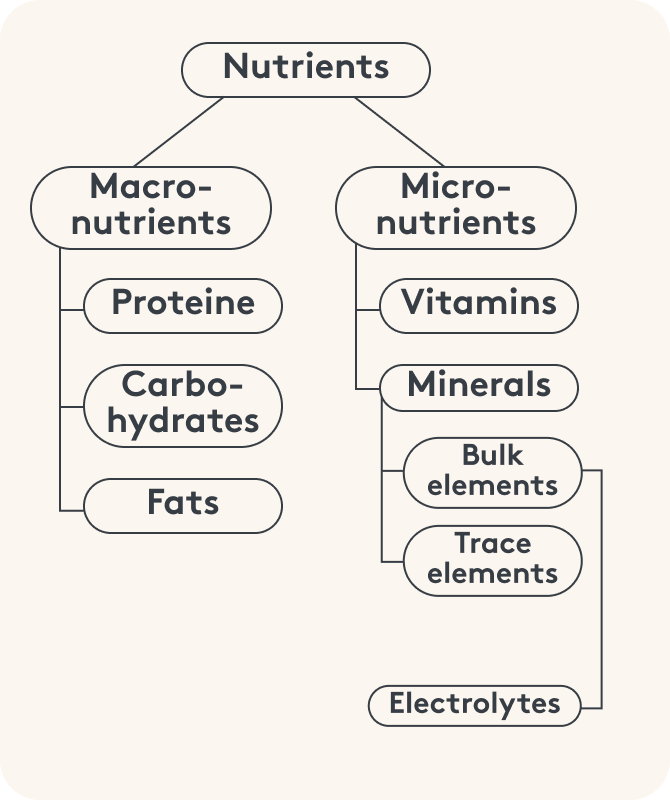

Athletes need these macronutrients
Strength athletes need to replenish their energy stores in the short term during exercise and primarily need proteins and carbohydrates. Endurance athletes, on the other hand, need more fatty acids to generate energy for their muscles, especially during very long training sessions. At the beginning of sport, glucose is the main source of energy; towards the end, it is mainly fat that plays a role.
As a result, strength athletes should make sure they have a sufficient protein intake - this prevents the body from breaking down muscles to gain energy. Fat is particularly important for endurance athletes. They should therefore integrate healthy fats and fatty acids into their diet. But what about micronutrients?

Which micronutrients provide power for athletes?
The need for vitamins and minerals also differs between strength and endurance athletes. To illustrate this for you, we will first look at the differences.
Endurance sports: what you should look out for
The intake of healthy fatty acids and membrane components is particularly important for endurance sports. Above all, you should provide your body with omega-3 fatty acids, substances such as phosphatidylcholine and other phospholipids, as well as fat-soluble antioxidants to maintain the membranes.
It is also important that the mitochondria, the energy powerhouses of your cells, are adequately supplied with micronutrients. This is where a large proportion of the energy you need to give your all during sport is produced. In addition, the mitochondria are the only place in your body where fat is burned.
If the mitochondria are undersupplied, they cannot work properly, which severely limits energy production and impairs the performance of endurance athletes. To prevent this from happening, you can supply your mitochondria with B vitamins and antioxidants through your diet and support them with the body's own coenzyme Q10 molecule.
Weight training: What do I need to build muscle?
If your focus is on building muscle, you need micronutrients that support your muscles and connective tissue. You may be familiar with creatine or creatine monohydrate in this context. Creatine is a substance that consists of the amino acids arginine, glycine and methionine and is primarily stored in the skeletal muscles.
And this is how creatine helps you during sport: if you tense a muscle, the adenosine triphosphate store is used up after just a few seconds. Adenosine triphosphate (ATP) is your body's energy source. During contraction, ATP breaks down into adenosine diphosphate (ADP) and a free phosphate. This releases energy. So that you don't run out of power, creatine in the form of creatine phosphate ensures that the body regenerates ATP from ADP and the ATP can release energy again.
This process delays the onset of anaerobic energy production, which produces lactate. This acidic molecule leads to rapid muscle fatigue. Well-filled creatine stores are therefore worth their weight in gold for your training.
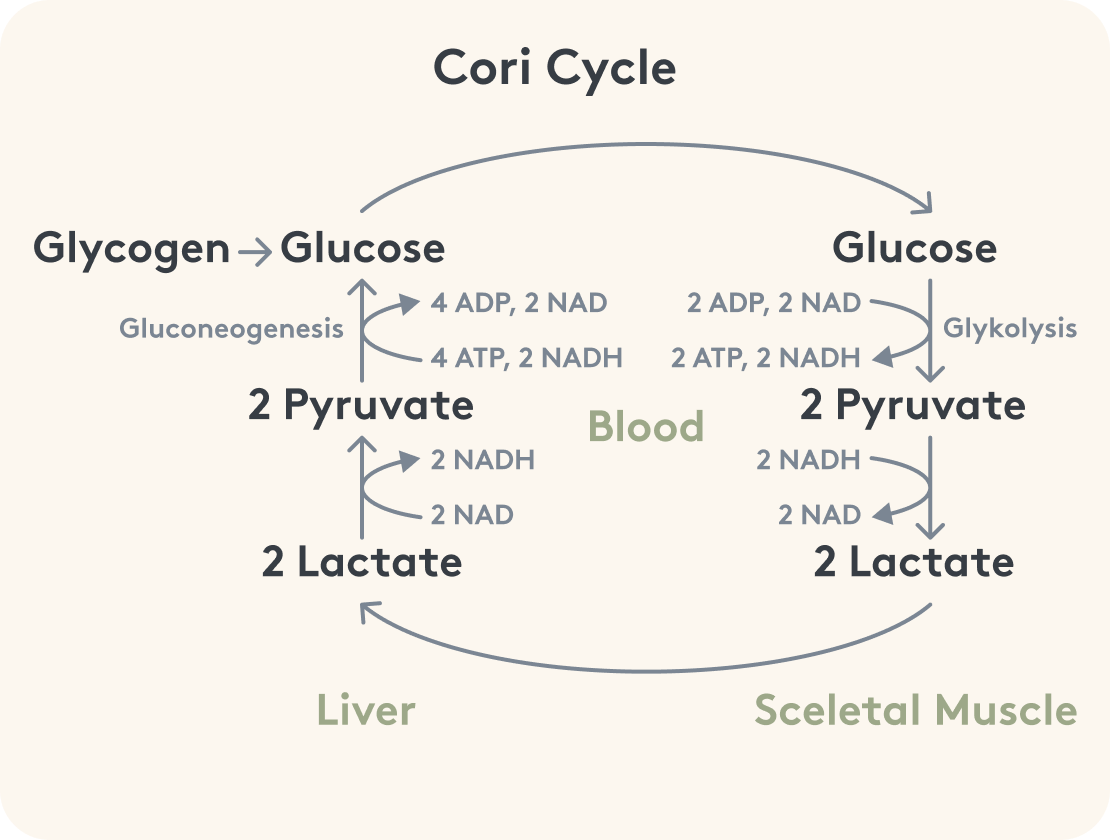

In addition to their muscles, strength athletes should also pay attention to their connective tissue and joints. After all, a strong, healthy musculoskeletal system not only helps you to perform better in sport, but also reduces the risk of injury. Collagen, chondroitin sulphate, glucosamine sulphate, hyaluronic acid, calcium, magnesium, vitamin C, zinc, manganese and other substances are well-known players in cartilage, joint and bone health.
Among other things, these substances are in the MITOcare product ORTHOjoint included, which was specially developed for a healthy musculoskeletal system.
However, weight training and endurance sport are not that different. Nevertheless, there are micronutrients that are equally important for both groups.
Which micronutrients are particularly important for athletes?
Even though weight training and endurance sports present your body with different challenges, there are micronutrients that are equally relevant for all athletes. We will now introduce you to the four most important representatives of vitamins and minerals.
Amino acids
When it comes to optimal nutrition during sport, amino acids are a fundamental pillar. They are not only the building blocks of proteins, which are found everywhere in the body and especially in the muscles, but also fulfill other functions:
- Energy production during sport
- Support the nervous and endocrine systems by participating in hormone and neurotransmitter synthesis
- Promotion of regeneration and fat burning
In this article you can find out more reasons why amino acids are so important in sport:
Advertisement
- Analyzes DNA & evaluates 82 genetic variants from 70 genes
- Records nutrition during exercise, injury & recovery, and athletic performance
- Provides information about nutritional requirements, sensitivities & prevention
- Athletic potential & micronutrients that are particularly important
- Muscle building, endurance sports, fat metabolism & lactate metabolism
- For a personalized exercise plan

Vitamine B, C & D
You already know that B vitamins contribute to the normal energy metabolism of your mitochondria. They are also involved in amino acid metabolism and are important for providing glucose for your muscles - especially vitamin B6, which is involved in protein metabolism and is therefore relevant for muscle building during sport.
Vitamin C, on the other hand, is important for the immune system, which needs a boost, especially after exercise. The antioxidant properties of some B vitamins, vitamin C and vitamin E are also important, as athletes' bodies are confronted with an increased level of oxidative stress caused by free radicals during training.
And vitamin D? This vitamin contributes to the maintenance of normal muscle function and can promote performance.
You can find out more about vitamin B and vitamin C in our blog article on water-soluble vitamins. Vitamin D is one of the fat-soluble vitamins. We also have a blog article on this for you.
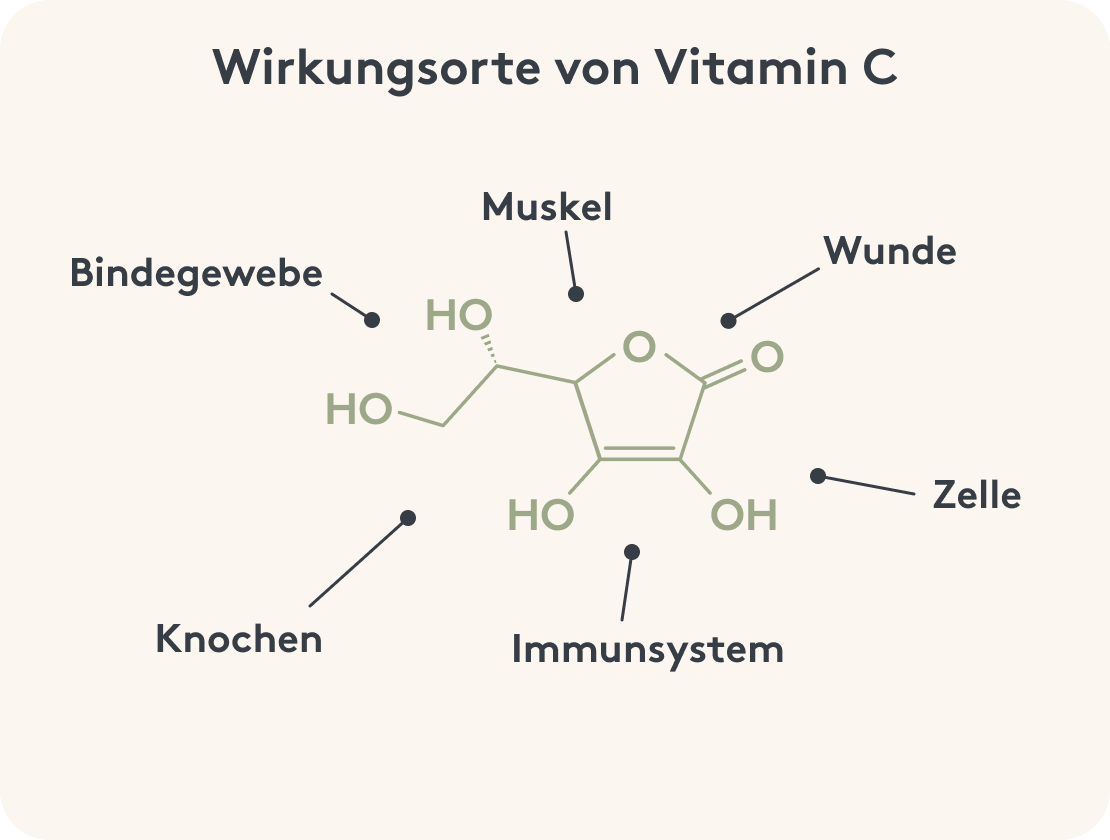

Minerals
Your bones, tendons, ligaments and muscles need minerals in order to function optimally during sport. Take magnesium, calcium and potassium, for example: they contribute to normal muscle function and are crucial for energy metabolism within the muscles.
Or the trace element iron: It is involved in blood formation and is therefore crucial for a proper oxygen supply to your muscles. Iron ensures that the energy metabolism runs smoothly and that not so much lactate is produced, which can lead to over-acidification of the muscles and potentially even promote muscle breakdown. Hobby, amateur and competitive athletes can confidently do without both.
Minerals also support the regulation of the acid-base balance. Athletes produce a comparatively large amount of acids due to protein-rich sports nutrition and the stress of training. They can therefore use any support that keeps acids and bases in balance.
Nucleotides
Nucleotides are the building blocks of your DNA. These molecules contain your genetic information and the blueprints of all proteins and enzymes in your body. This blueprint plays an important role in protein synthesis - including in your muscles and especially in muscle building. In addition to nucleotides, amino acids are also needed to make the blueprint usable.
Nucleotides are also important signaling molecules within your cells and energy carriers. The important energy molecule ATP is also a nucleotide.
Are you interested in nucleotides? Then check out our blog article:
Tips for your nutrient balance: how to optimally cover your needs
We have now clarified which vitamins and minerals your body needs to be optimally strengthened for your sporting goals. The only question that remains is: how can you cover the increased nutrient requirements that athletes face?
Ideally, you should make sure you eat a balanced sports diet. This definitely includes eating enough protein and healthy fats. But as you now know, micronutrients are also essential for athletes. The rule of thumb is therefore to eat a portion of vegetables with every portion of protein. Fruit also contains many vitamins, minerals and co.
Are nutritional supplements helpful during sport?
Depending on how athletes structure their diet and what goals they pursue in sport, it is possible that various ingredients and nutrients are not or not sufficiently represented in the diet. To ensure that the body is supplied with all minerals, vitamins, nucleotides and amino acids, many athletes therefore decide to take nutritional supplements.
This article is based on carefully researched sources:


























